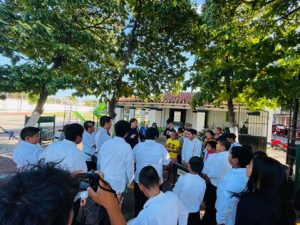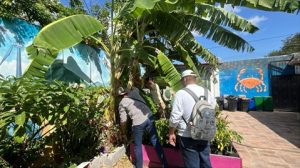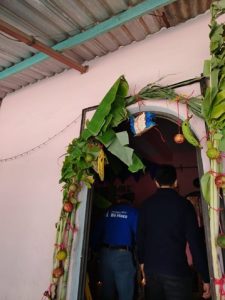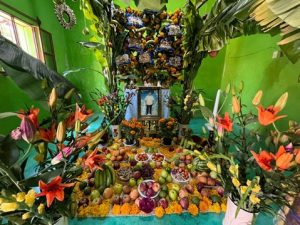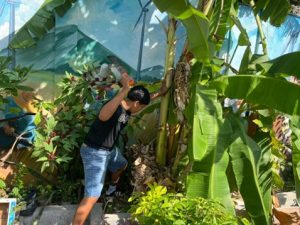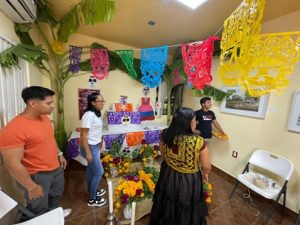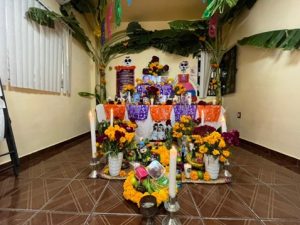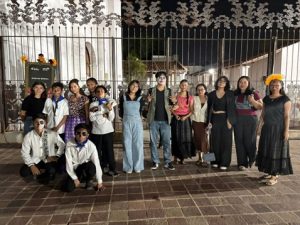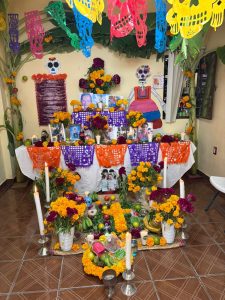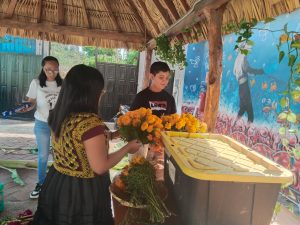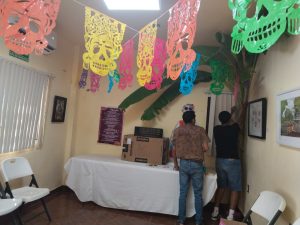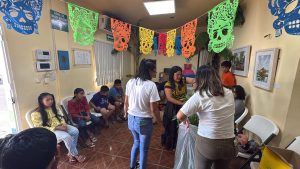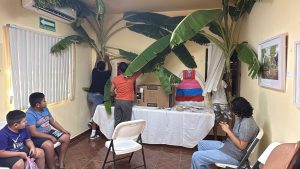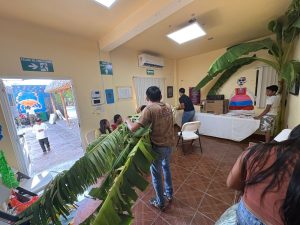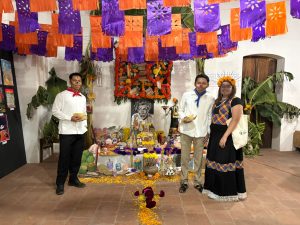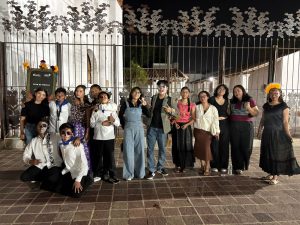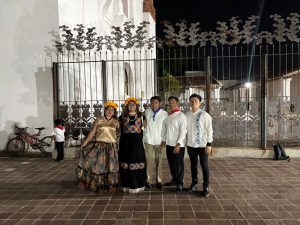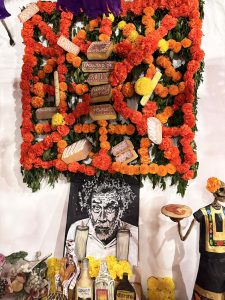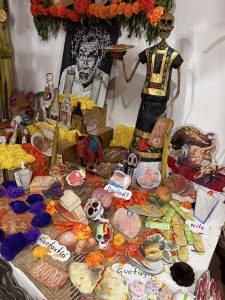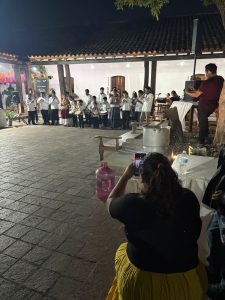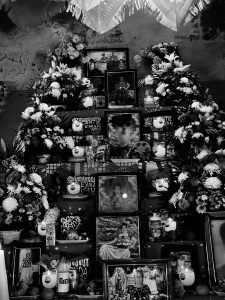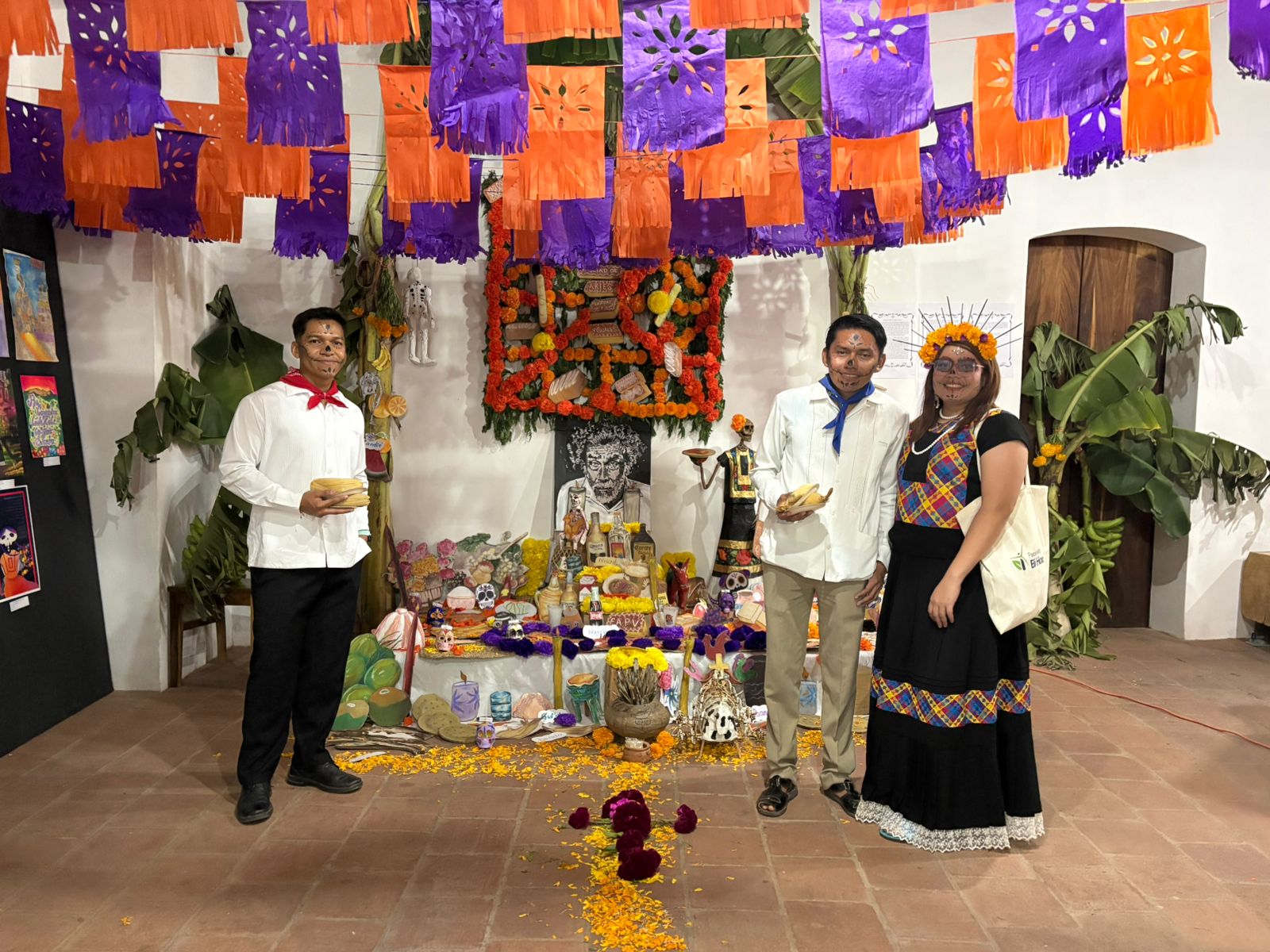On October 30 and 31, celebrations of Xandu’ — known in other regions of Mexico as the Day of the Dead or All Saints’ Day — took place at Casa Comunitaria Nacanu’ Bií, with the participation of GPG Mexico.
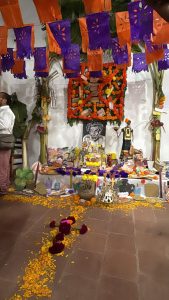
The Xandu’ celebration, one of Mexico’s most meaningful traditions, officially takes place on November 2 but is preceded by several days of festivities.
In Juchitán, Xandu’ is not only a way to honor loved ones who have passed but also a reaffirmation of identity — keeping the community’s memory alive through songs, flavors, and moments of reflection.
In the Isthmus of Tehuantepec, especially among Zapotec communities, the celebration holds great importance. Families build elaborate altars adorned with food and flowers to honor the deceased, while the streets fill with music and rituals that symbolize the bond between generations.
Each region celebrates this tradition in its own unique way:
- In the North: offerings of pan de muerto (bread of the dead) and paper decorations stand out.
- In the South: candles, prayers, and traditional meals take center stage.
30th of October
Collaboration with the Bií Hioxo Wind Farm
On the first day of the festivities, the Xquendas and the Social Management team divided into two groups to coordinate visits with families who own the land of the Bií Hioxo Wind Farm — moments marked by respect and solidarity.
In the first home, volunteers helped prepare a Biguie’, a traditional altar made with fruits, bread, and flowers tied together. The family, grateful for their effort, offered tamales and bread as a gesture of reciprocity.
At the second home, the team visited a seven-tier altar accompanied by a troubadour. This type of altar represents the seven levels a soul must cross to reach spiritual rest, with each tier symbolizing a step in the journey and decorated with meaningful elements such as photos, drinks, and personal belongings. The family also thanked the team with food offerings.
The day concluded with a reflection circle with the Xquendas, where participants shared emotions and learnings from the experience, deepening their understanding of the symbolic and emotional value of these traditions.
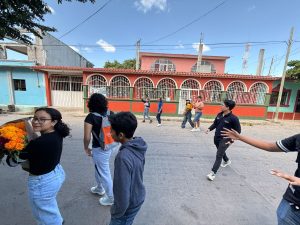
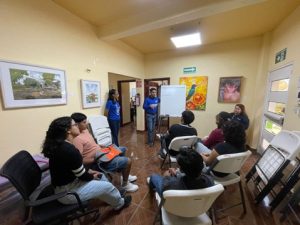
Musical Performances
In the afternoon, families gathered for a talk about the importance of respecting traditions and honoring the deceased during this time of remembrance, followed by a performance of traditional music by the Pitu Nisiaba Club (“Music of the Soul”) and the regional band workshop.
Respect for the occasion was maintained at all times — the music paused whenever a funeral procession passed by.
Among the pieces performed were “Carreta guie’” (Cart of Flowers), “Son mudubina” (Butterfly Song), and “La martiniana”, followed by regional band classics such as “Mambo dolito”, “Mi linda Juchiteca”, and “Solo a ti te quiero.” The moving performance deeply touched the audience, and emotional support was provided to two members of the club who were overwhelmed by the intensity of the experience.
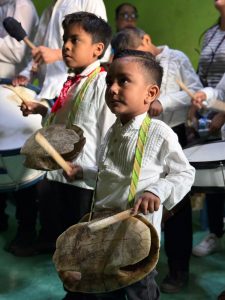
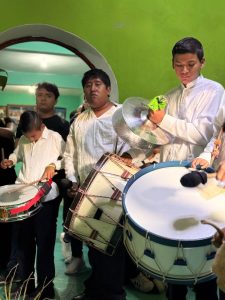
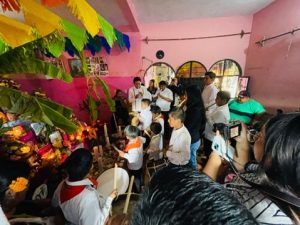
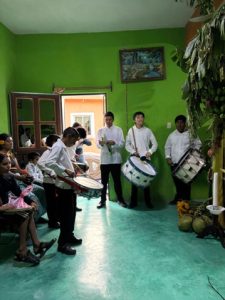

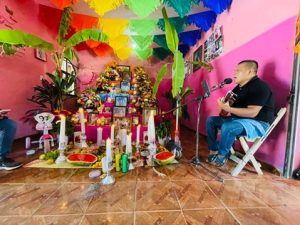
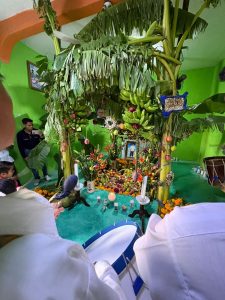
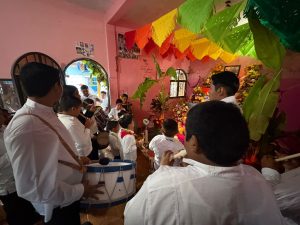
31 de Octubre
Rituals
On October 31, a community altar was built at Casa Comunitaria Nacanu’ Bií, with participation from both neighbors and volunteers.
The altar’s structure was made of banana leaves harvested from the community garden, integrating an environmental aspect into the ritual. The community added flowers, candles, and photographs of their loved ones, creating a shared space of remembrance filled with emotion and reflection. The celebration closed with a communal meal of tamales and rice milk prepared by the neighbors.
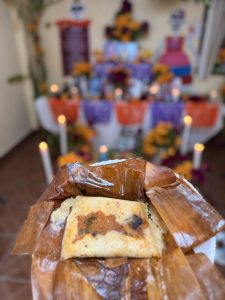
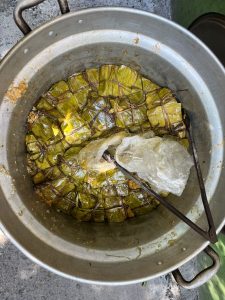
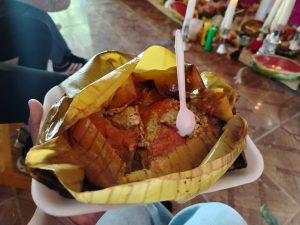
Musical Activities
That same day, thePitu Nisiaba Club (“Music of the Soul”) participated in the Guenda Riacha Ladi (“Festival of the Great Spirits”) event, organized by the Faculty of Plastic and Visual Arts at the Benito Juárez Autonomous University of Oaxaca (UABJO) in Juchitán.
With the support of volunteers and family members, the participants dressed as catrines (traditional Day of the Dead figures) and performed pieces such as “Son lula” (Song of Light), “Mi linda Juchiteca”, and “Son calenda” (Procession Song), embodying the spirit of the celebration and inspiring the audience to honor life.
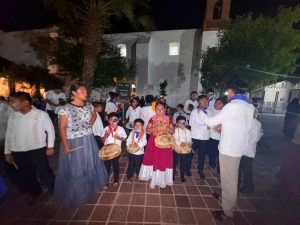
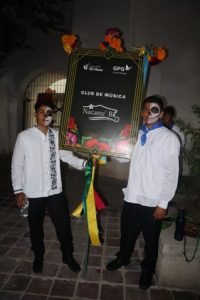
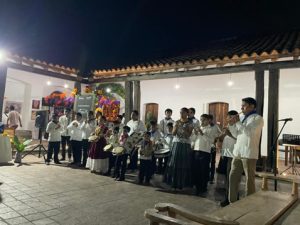
At the end of the event, the group received an official invitation to collaborate in the upcoming Señor de Esquipulas festivities in January — a reflection of how these cultural initiatives strengthen interinstitutional ties.
As a gesture of community solidarity, banana leaves were also donated to the Faculty of Arts for decorating their event, symbolically reaffirming the shared commitment to collaboration and cultural continuity.
